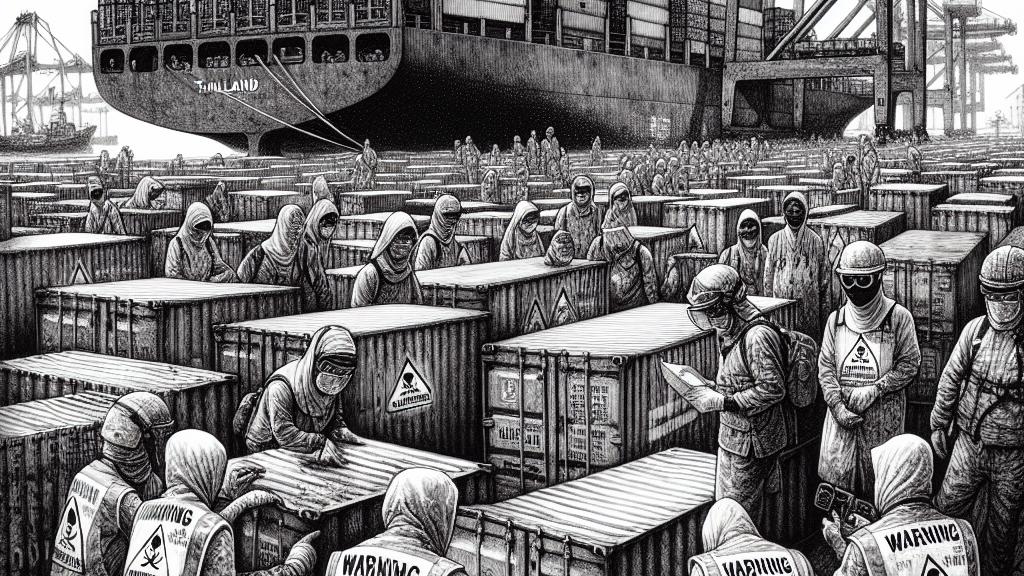Thailand's Race Against Time: Stopping Toxic Waste from Albania!
Overview
- Thai officials are urgently working to intercept hazardous waste shipments from Albania before they arrive in Thailand.
- The Basel Action Network identified these shipments as potentially harmful electric arc furnace dust, raising health concerns.
- This incident underscores the need for robust international regulations and collaborations to combat illegal toxic waste trafficking.

Thailand’s Proactive Measures Against Toxic Waste Influx
In August 2024, urgent measures were initiated by Thai authorities to halt the arrival of approximately 100 shipping containers believed to be filled with hazardous industrial waste from Albania. The alarm was raised by the Basel Action Network, a prominent U.S.-based non-profit organization, which alerted Thailand to the suspected toxic nature of the cargo—specifically, electric arc furnace dust, known for its harmful effects. As a result of this notification, the Department of Industrial Works in Thailand immediately coordinated with authorities in Albania and Singapore to prevent these containers from entering Thai ports, emphasizing the lack of consent for such shipments and underscoring the seriousness of the situation.
Clarifying the Risks Associated with Toxic Waste
Understanding the nature of toxic waste is crucial in assessing the risks it poses. Toxic waste, as defined by the U.S. Environmental Protection Agency (EPA), includes materials that can cause severe health issues or death upon exposure. This encompasses various harmful substances, including heavy metals like lead and mercury, as well as chemical waste that can have carcinogenic properties or lead to other serious health conditions. In recent years, Thailand, along with several Southeast Asian nations, has seen an increasing influx of illegal waste shipments disguised as recyclable materials from developed countries. This trend has led to rising public concern about the environmental and health impacts associated with toxic waste, highlighting the need for heightened awareness among citizens and robust protective measures.
The Importance of Global Cooperation and Regulatory Enforcement
The fight against toxic waste trafficking is guided by frameworks such as the Basel Convention, which mandates countries to secure prior informed consent before exporting hazardous waste. Unfortunately, enforcement of these regulations remains a challenge, as some developed countries exploit loopholes to send waste to less developed nations. The Basel Action Network plays an essential role in monitoring these transactions, providing critical alerts to governments like Thailand about illegal shipments. This unfolding situation illustrates the need for strengthened international cooperation, where countries work together to share information and enhance regulatory frameworks to protect public health and the environment. By fostering partnerships and ensuring compliance with international laws, nations can collectively combat the pressing issue of toxic waste and safeguard ecosystems worldwide.

Loading...